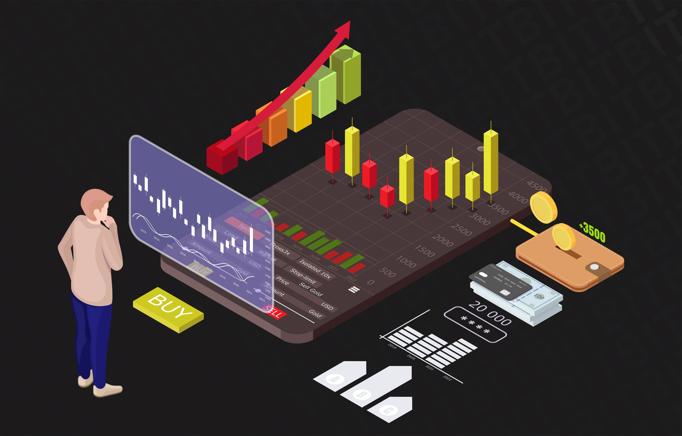What is a stock buyback
Tiền điện tử cho người mới bắt đầu
Các bài viết khác
When a firm buys back its own stock, or repurchases shares, it reduces the total number of shares outstanding. In essence, buybacks "re-slice the pie" of earnings into fewer slices, allowing existing investors to get more. A firm can spend its cash in a variety of ways, including investing in operations, paying off debt, purchasing another company, and paying out a dividend to shareholders. A company's repurchase authorization, which specifies the magnitude of the repurchase in terms of the number of shares it could acquire, a percentage of its stock, or, most often, a monetary amount, is normally announced before it does a stock buyback.
A firm would often repurchase shares on the open market, just like an ordinary investor. As a result, rather than purchasing from specific owners, it buys from any investor who wants to sell the shares. Because any investor can sell into the market, the corporation works to treat all investors equitably. Investors are not obligated to sell their shares just because the corporation is repurchasing them.
It's vital to remember that, despite a permission, a firm may decide not to buy back shares at all if management changes its mind, a new priority emerges, or a crisis occurs. Stock buybacks are always at the discretion of management and are based on the firm's requirements.
Because stock buybacks may both produce and destroy worth, people who oppose them offer some strong arguments for why they are bad.
Nonetheless, some opponents suggest that the money may be better spent elsewhere, such as on operations. This rationale may be valid in some situations, such as when a corporation is cutting its research budget to buy back shares. Investors (who own the company) and management have the last say. A well-run business would often acquire its own shares with cash left over from operations or debt it could easily repay.
Stock buybacks are beneficial or harmful depending on who does them, when they do them, and why they do them. Repurchasing shares while ignoring other objectives is almost likely a massive mistake that will cost shareholders money in the long run.
A skilled CEO, on the other hand, who spends funds on a repurchase after efficiently investing in operations? Because the CEO is focused on placing capital - shareholders' money – into appealing ventures, this might be a successful investment. And if the management team is concerned about the future of your investment, that's a positive indicator.
Companies, that made biggest stock buybacks in the third quarter in 2021:
- Apple (20.5 billion dollars’ worth of buybacks)
- Alphabet Google (15 billion dollars’ worth of buybacks)
- Meta Platforms Facebook (12.6 billion dollars’ worth of buybacks)
- Microsoft (8.8 billion dollars’ worth of buybacks)


